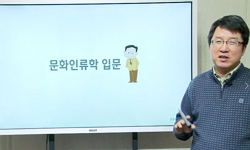한국 민속학은 1930년대 초에 태동하였다. 한국 민속 연구의 성립 배경은 일제강점기였으며, 일본에 유학하였던 손진태와 송석하가 선도하였다. 당시 일제 관학자들은 식민통치의 수단으로 ...
http://chineseinput.net/에서 pinyin(병음)방식으로 중국어를 변환할 수 있습니다.
변환된 중국어를 복사하여 사용하시면 됩니다.
- 中文 을 입력하시려면 zhongwen을 입력하시고 space를누르시면됩니다.
- 北京 을 입력하시려면 beijing을 입력하시고 space를 누르시면 됩니다.

일제강점기(日帝强占期) 역사민속학(歷史民俗學)의 태동(胎動)과 전개(展開) -손진태(孫晉泰) 민속학(民俗學)을 중심으로- = Birth and Development of Historical Folklore during the period of Japan`s Colonization of Korea
한글로보기https://www.riss.kr/link?id=A101720407
- 저자
- 발행기관
- 학술지명
- 권호사항
-
발행연도
2011
-
작성언어
Korean
-
주제어
민속학 ; 인류학 ; 손진태 ; 신민족주의 ; 민족문화학 ; 손진태 민속학 ; folklore ; anthropology ; Jin-Tae Son ; neo-nationalism ; national culturism ; Jin-Tae Son folklore
-
등재정보
KCI등재
-
자료형태
학술저널
-
수록면
235-267(33쪽)
- 제공처
-
0
상세조회 -
0
다운로드
부가정보
국문 초록 (Abstract)
한국 민속학은 1930년대 초에 태동하였다. 한국 민속 연구의 성립 배경은 일제강점기였으며, 일본에 유학하였던 손진태와 송석하가 선도하였다. 당시 일제 관학자들은 식민통치의 수단으로 역사 연구와 민속 연구에 집중하는 시점이었고, 초창기 민속학자들은 일본인 인류학자의 영향을 받으며 민속학 연구를 전개하였다. 한국 민속학의 개척자인 손진태도 일본 유학중 역사학적 인류학도로서 민속 연구에 강한 집념을 보였고, 많은 연구 업적을 냈다. 손진태 민속학은 민족 문화를 인류학적으로 해석, 연구하는 과정에서 한국 민속을 원시문화로 기술하는 논조가 강하였다. 손진태의 초창기 민속 연구는 일제가 추구한 제국주의적 인류학 연구에 묵시적으로 동조한 면이 있다. 그러나 1934년 귀국한 이후 10여 년간 식민지 민속학에 대한 철저한 자기반성의 과정을 거치면서 신민족주의 사학자로서 과감하게 변신을 시도한다. 민속학자가 아닌 한국사학자로서 민족사 및 민족문화에 대한 역사관을 드러낸다. 그는 민속학을 민족문화학이라 규정하였다. 현장 중심의 한국 민속 연구가 농촌의 공동체 붕괴로 위기를 맞을상황에 놓여 있다. 한국 민속학의 위기 극복은 “민족문화학으로서의 민속학”이 대안일수 있다. 손진태는 일제하에서 식민지 민속학에 기여하였지만, 자신의 역사관을 재정립한 뒤 해방 이후에는 민족문화학의 정립에 앞장섰다. 오늘날 한국 민속학계도 일제강점기 이후 지속되어 온 식민지 민속학 연구 방법론을 극복하는 방향으로 거듭나야 한다. 손진태가 제창한 민족문화학으로서 민속학을 실천하고, 민속의 현장을 중시하고 역사 속에서 민속자료를 찾아서 연계시키는 역사민속학 방법론을 적극 수용하는 것이 민속학의 위기 극복의 지름길이라고 본다.
다국어 초록 (Multilingual Abstract)
Studies on folklore in Korea started in the early of 1930s. Jin-Tae Son and Suk-Ha Song who studied in Japan during the period of Japan’s colonization of Korea were the leaders of the studies. Those were the times when Japanese scholars studied on K...
Studies on folklore in Korea started in the early of 1930s. Jin-Tae Son and Suk-Ha Song who studied in Japan during the period of Japan’s colonization of Korea were the leaders of the studies. Those were the times when Japanese scholars studied on Korean history and Korean folklore as a way to rule Korea and they influenced on Korean scholars who studied on folklore. The pioneer of the studies on Korean folklore, Jin-Tae Son, had a strong interest in Korean folklore while he was in Japan and made remarkable achievement in the field. His early studies described Korean folklore as a primitive culture which shows that he agreed with the Japanese scholars who studied anthropology to control Korea. However, after he returned to Korea in 1934, he regretted his previous studies and turned into a neo-nationalist. He revealed his ideas on Korean history and nationalistic culture as a Korean historian. He prescribed folklore as national culturism. Studies on Korean folklore is on the verge of collapse with the breakdown of village community. The conquest of the crisis can be an alternative of folklore. Jin-Tae Son led the establishment of national culturism after the restoration of Korean independence while contributed on the folklore with Japanese scholars during the period of Japan``s colonization of Korea. Today, Korean scholars who study on Korean folklore should change their way to study which they took after the Japanese scholars. We should study folklore in the way of Jin-Tae Son’s national culturism, consider the spots of folklore seriously and accept the methodology of historical folklore and it can be an way to overcome the risk which we have today in studies on folklore.
동일학술지(권/호) 다른 논문
-
- 남도민속학회
- 김혜정 ( Hey Jung Kim )
- 2011
- KCI등재
-
- 남도민속학회
- 나경수 ( Kyung Soo Na )
- 2011
- KCI등재
-
- 남도민속학회
- 이경엽 ( Kyung Yup Lee )
- 2011
- KCI등재
-
- 남도민속학회
- 김은정 ( Eun Jung Kim )
- 2011
- KCI등재




 KISS
KISS






